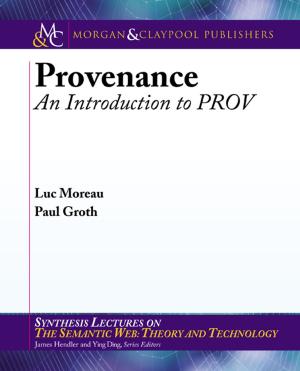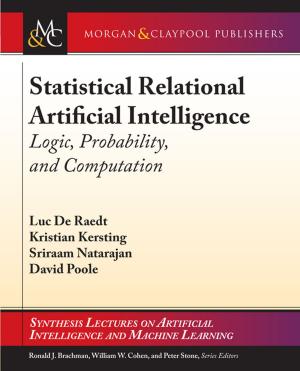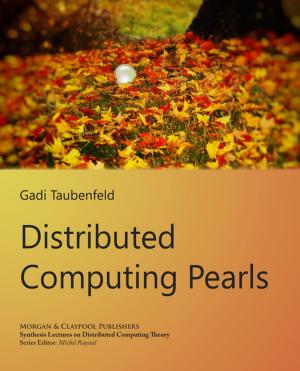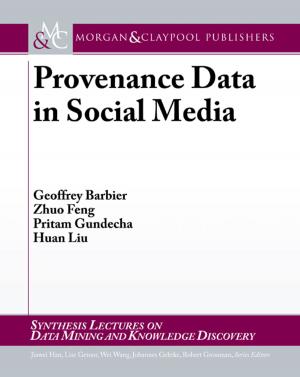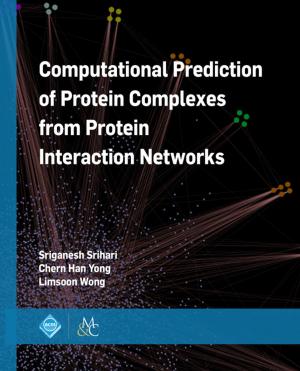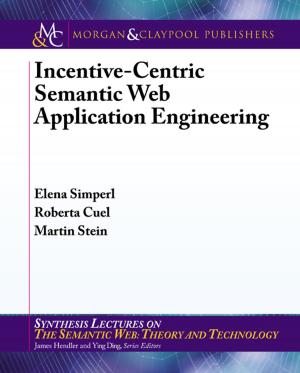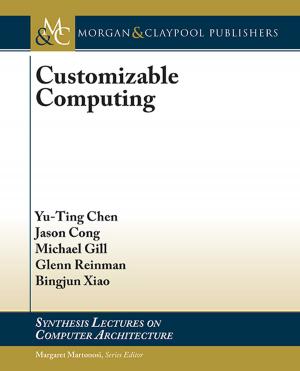Lifelong Machine Learning
Second Edition
Nonfiction, Computers, Advanced Computing, Engineering, Neural Networks, Artificial Intelligence, Computer Science| Author: | Zhiyuan Chen, Bing Liu, Ronald Brachman, Peter Stone, Francesca Rossi | ISBN: | 9781681733999 |
| Publisher: | Morgan & Claypool Publishers | Publication: | August 14, 2018 |
| Imprint: | Morgan & Claypool Publishers | Language: | English |
| Author: | Zhiyuan Chen, Bing Liu, Ronald Brachman, Peter Stone, Francesca Rossi |
| ISBN: | 9781681733999 |
| Publisher: | Morgan & Claypool Publishers |
| Publication: | August 14, 2018 |
| Imprint: | Morgan & Claypool Publishers |
| Language: | English |
Lifelong Machine Learning, Second Edition is an introduction to an advanced machine learning paradigm that continuously learns by accumulating past knowledge that it then uses in future learning and problem solving. In contrast, the current dominant machine learning paradigm learns in isolation: given a training dataset, it runs a machine learning algorithm on the dataset to produce a model that is then used in its intended application. It makes no attempt to retain the learned knowledge and use it in subsequent learning. Unlike this isolated system, humans learn effectively with only a few examples precisely because our learning is very knowledge-driven: the knowledge learned in the past helps us learn new things with little data or effort. Lifelong learning aims to emulate this capability, because without it, an AI system cannot be considered truly intelligent.
Research in lifelong learning has developed significantly in the relatively short time since the first edition of this book was published. The purpose of this second edition is to expand the definition of lifelong learning, update the content of several chapters, and add a new chapter about continual learning in deep neural networks—which has been actively researched over the past two or three years. A few chapters have also been reorganized to make each of them more coherent for the reader. Moreover, the authors want to propose a unified framework for the research area. Currently, there are several research topics in machine learning that are closely related to lifelong learning—most notably, multi-task learning, transfer learning, and meta-learning—because they also employ the idea of knowledge sharing and transfer. This book brings all these topics under one roof and discusses their similarities and differences. Its goal is to introduce this emerging machine learning paradigm and present a comprehensive survey and review of the important research results and latest ideas in the area. This book is thus suitable for students, researchers, and practitioners who are interested in machine learning, data mining, natural language processing, or pattern recognition. Lecturers can readily use the book for courses in any of these related fields.
Lifelong Machine Learning, Second Edition is an introduction to an advanced machine learning paradigm that continuously learns by accumulating past knowledge that it then uses in future learning and problem solving. In contrast, the current dominant machine learning paradigm learns in isolation: given a training dataset, it runs a machine learning algorithm on the dataset to produce a model that is then used in its intended application. It makes no attempt to retain the learned knowledge and use it in subsequent learning. Unlike this isolated system, humans learn effectively with only a few examples precisely because our learning is very knowledge-driven: the knowledge learned in the past helps us learn new things with little data or effort. Lifelong learning aims to emulate this capability, because without it, an AI system cannot be considered truly intelligent.
Research in lifelong learning has developed significantly in the relatively short time since the first edition of this book was published. The purpose of this second edition is to expand the definition of lifelong learning, update the content of several chapters, and add a new chapter about continual learning in deep neural networks—which has been actively researched over the past two or three years. A few chapters have also been reorganized to make each of them more coherent for the reader. Moreover, the authors want to propose a unified framework for the research area. Currently, there are several research topics in machine learning that are closely related to lifelong learning—most notably, multi-task learning, transfer learning, and meta-learning—because they also employ the idea of knowledge sharing and transfer. This book brings all these topics under one roof and discusses their similarities and differences. Its goal is to introduce this emerging machine learning paradigm and present a comprehensive survey and review of the important research results and latest ideas in the area. This book is thus suitable for students, researchers, and practitioners who are interested in machine learning, data mining, natural language processing, or pattern recognition. Lecturers can readily use the book for courses in any of these related fields.


